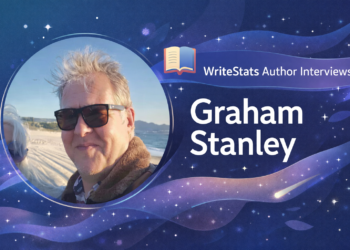About the Author: Amr Muneer Dahab
Amr Muneer Dahab — widely known by his literary moniker NasDahab — is a Sudanese-born essayist, poet, and cultural critic whose voice has shaped contemporary Arabic and bilingual literature for more than three decades. Educated in electrical engineering at Mansoura University (Egypt) and professionally based in the United Arab Emirates, Dahab represents a rare fusion of technical precision and literary depth.
Over the course of his career, he has authored more than 48 books in both Arabic and English, spanning philosophy, literature, identity, and social commentary. His English-language titles include:
- Damn the Novel: When a Privileged Genre Prevails Over All Forms of Creative Writing
- Facing Troublemakers
- Wisdom Highway
- You Are Always Good to Go
- Criticizing
In Arabic, his body of work extends even further, featuring widely discussed titles such as O Writers Be Humble, Arab Genes, Football Genes, Feminine Genes, and The Sudanese Character in the Eyes of the Sudanese Elite.
Through his prolific output, Dahab has become known for challenging literary hierarchies and questioning the dominance of certain genres, particularly the novel, over other creative forms. His essays often explore the intersections of cultural identity, intellectual honesty, and artistic freedom, making him one of the few contemporary Arab authors to treat the essay not just as commentary, but as an art form in its own right.
In addition to his books, Dahab has contributed to numerous newspapers and cultural platforms in Sudan, Egypt, and the United States, cementing his reputation as both a public intellectual and literary craftsman.
In this exclusive WriteStats feature, Amr Muneer Dahab opens up about his creative journey, his evolving philosophy of authorship, and the convictions that have shaped his long career, revealing the mind of a writer who values truth over trend and depth over applause.
From Poetry to Essays: A Shift That Defined a Career
“I began writing as a poet during my high school and university days. Then I turned to essays as an independent literary genre, to which I have devoted almost all my literary efforts.”
For Dahab, writing began in rhythm and verse, yet poetry was only a starting point. Over time, the essay became his chosen language, blending reflection, argument, and philosophy.
He credits this shift partly to his older brother, Muhammad Muneer Dahab, whom he calls his greatest literary influence. “He inspired me to transition from poetry to essays,” Dahab says, describing a move that would define the rest of his creative life.
This evolution — from lyrical expression to intellectual exploration — mirrors the broader literary trend we’ve tracked in 5 Research Trends Every Author Should Know Before 2026: the resurgence of cross-genre writing, where authors merge personal reflection with structured argument to engage modern readers seeking authenticity and insight.
The Power of Influence: Tradition and Innovation in Balance
“I was influenced by the two great Arab poets, Al-Mutanabbi and Ahmed Shawqi… and by numerous writers and critics from around the world, both ancient and modern.”
Dahab’s creative DNA is rooted in classical Arabic literature, yet deeply aware of global thought. His writing pays homage to the eloquence of Arabic poetry while engaging with modern literary criticism, forming a bridge between the past and the present —an approach that makes his work both culturally rich and timelessly relevant.
His essay “They Inspired Me” (from his book People and Statuses) chronicles these influences in depth, mapping how art, intellect, and heritage shape a writer’s creative core.
Writing as a Lifelong Habit, and a Challenge
“After more than thirty years of professional writing, it’s become a habit; I feel irritated at the mere thought of not writing.”
That statement, delivered with a quiet confidence, captures Dahab’s ethos perfectly: writing is not only a vocation but a condition of existence.
In a publishing world often driven by trends, Dahab’s consistency stands out. He writes daily, often as part of his ongoing work in opinion journalism, literary criticism, and social commentary for newspapers in Egypt, Sudan, and the United States.
Yet even for a seasoned writer, the path isn’t easy.
“The challenge I face with my original, unique, and controversial writing style is popularity. I confront it with continued creativity and perseverance.”
This self-awareness is striking, and it echoes what many emerging authors face today: the tension between originality and accessibility. Dahab’s response offers a model of resilience: honor your distinct voice, even when it complicates your success.
Craft and Process: A Modern Writer with Traditional Discipline
When asked about his writing tools, Dahab’s answer was refreshingly simple:
“Almost all of my books, except the first two, were written on a computer using Microsoft Word… I use an Arabic dictionary and Google Translate for cross-language support.”
This blend of tradition and practicality shows a writer grounded in his craft, not distracted by the latest tech. Even his book covers reflect this hands-on approach; he designs most of them himself, using PowerPoint, proof that creativity thrives within simplicity.
His choice of publishing platforms also reflects a practical understanding of reach and audience:
“I chose my publishing platform based on reach and followers. My experience with my Arabic publisher is personal and appreciative; my English publisher is formal and committed.”
At WriteStats, we’ve seen this balance — personal connection versus platform reach — emerge as one of the key success factors for global authors. Dahab’s approach illustrates how seasoned writers can adapt to different publishing ecosystems while maintaining full creative control.
His Relationship with AI: Thoughtful Caution, Not Rejection
Few questions divide modern authors like AI. Dahab’s response is nuanced and refreshingly measured.
“I’m not against AI at all… I’ve used it as a reference for statistics I wanted to verify, and once to improve a poor image. But it should be used only in such specific situations.”
While he identifies as “against using AI tools” broadly in creative writing, his reasoning isn’t reactionary; it’s rooted in integrity and intentionality. For Dahab, technology should serve accuracy, not replace artistry.
That position aligns closely with WriteStats’ stance on data-assisted creativity using analytics and tools to support, not overshadow, the human craft of writing.
The Economics of Authorship: Writing for Impact, Not Income
Dahab identifies as a full-time author, yet he’s transparent about the financial realities:
“So far, I don’t rely on writing books to make a living at all.”
His motivation is neither commercial nor performative. Instead, it’s about longevity, influence, and intellectual contribution.
“I aspire for my books to have a profound impact on people’s thoughts and to transcend all generations.”
This statement captures the essence of why he writes: to spark thought, not to chase algorithms.
What’s Next: Engineering Meets Literature
In a fascinating blend of his two worlds, Dahab’s next book is inspired by his engineering background.
“I am working on a book inspired by my practical experience in the field of engineering.”
Given his track record, including Damn the Novel, Facing Troublemakers, Wisdom Highway, and You Are Always Good to Go, this upcoming work promises to merge technical precision with philosophical depth, a fusion few writers could attempt.
A Legacy of Courage and Consistency
Amr Muneer Dahab’s story is not one of sudden fame or market-driven trends. It’s the story of a writer who has steadily built a literary identity grounded in conviction, craft, and courage.
His refusal to conform, his love for the essay as an art form, and his openness about the challenges of popularity all point to a truth that resonates deeply with today’s authors:
Success isn’t defined by the crowd that follows, but by the clarity of the voice that leads.
For authors navigating their own creative crossroads, Dahab’s journey offers both inspiration and validation, proof that originality, even when difficult, is worth defending.
Explore Amr Muneer Dahab’s work at nasdahab.com
and read more author insights on WriteStats.









